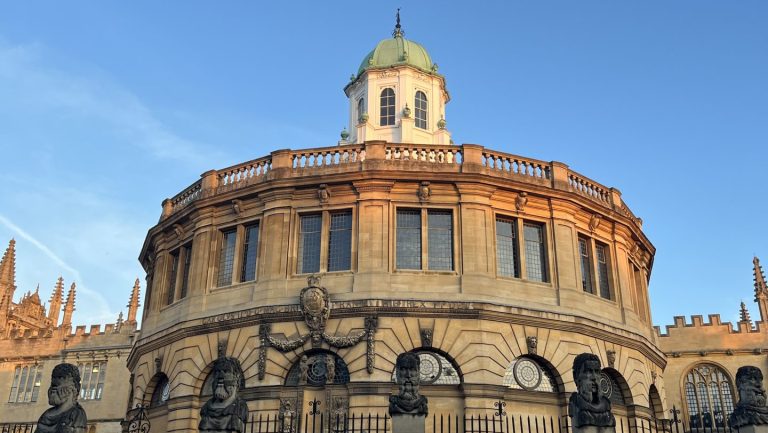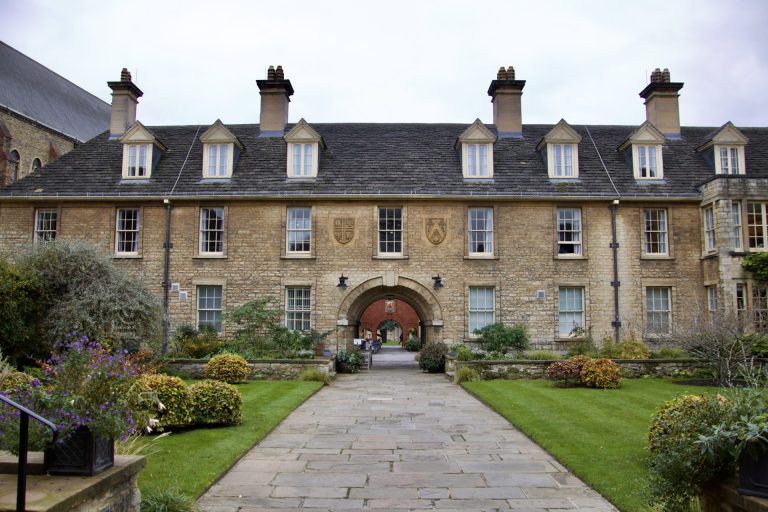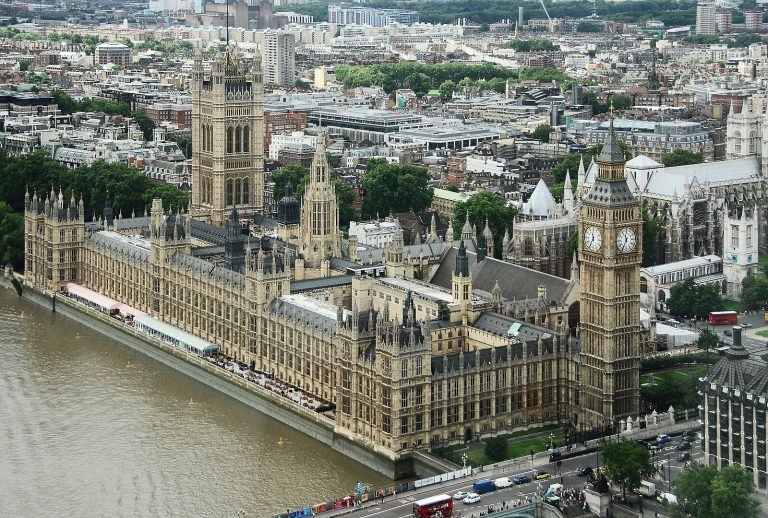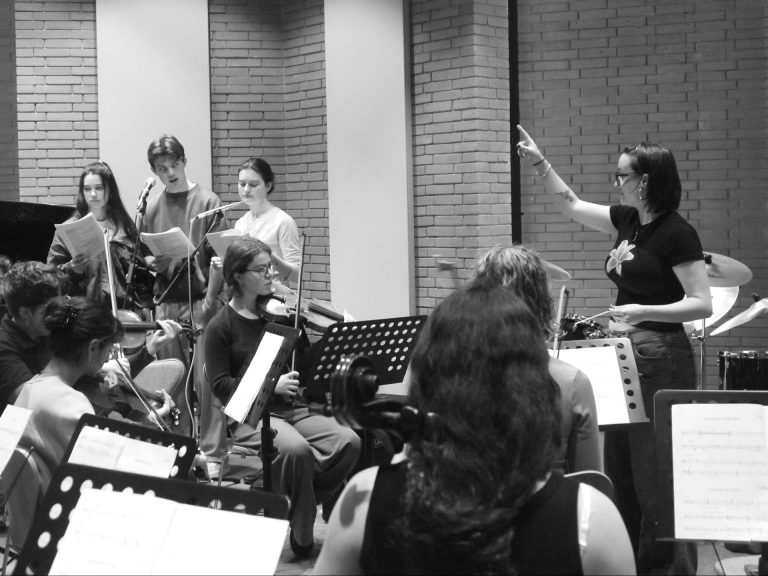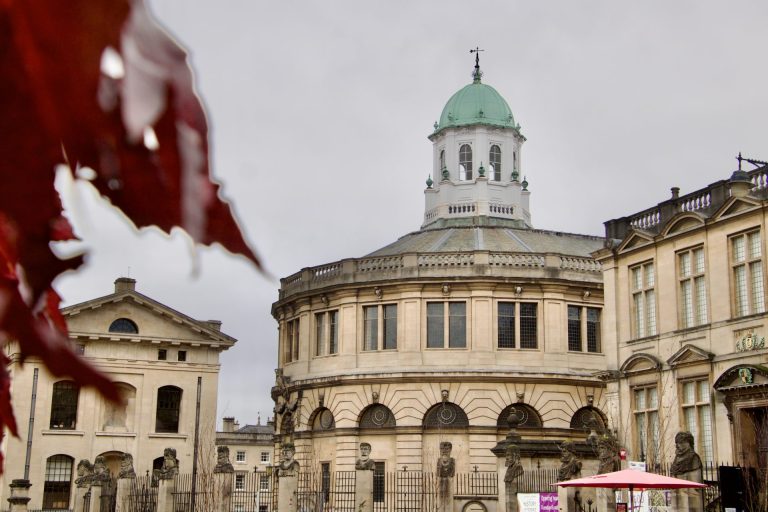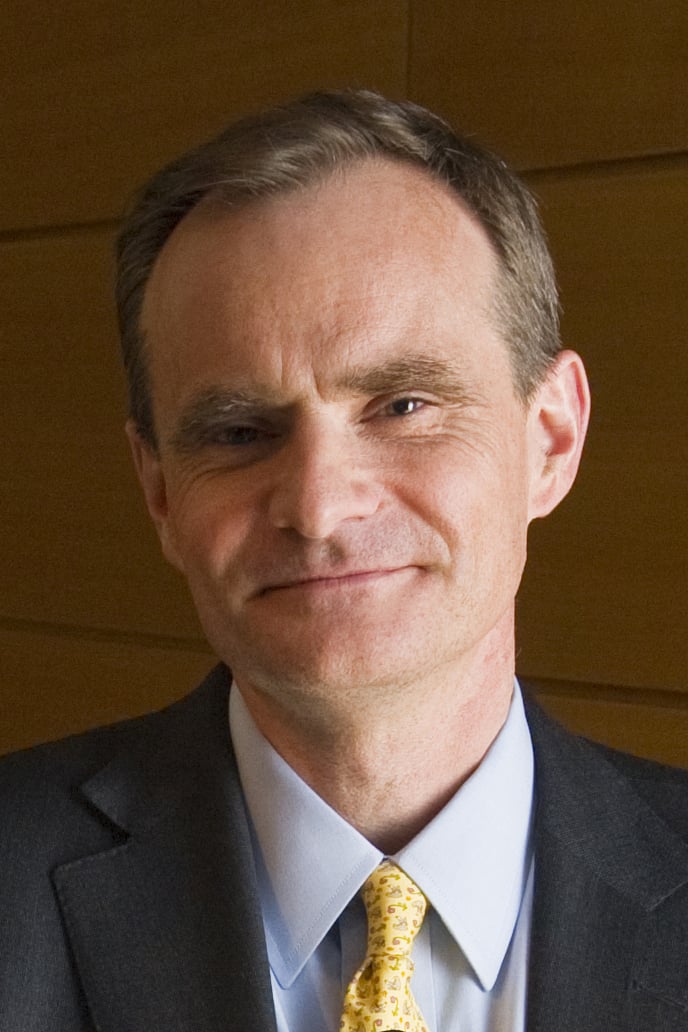Alan Johnson was an MP from 1997 until 2017 and worked in various shadow Cabinet positions under both Tony Blair and Gordon Brown, including as Education Secretary, Health Secretary and Home Secretary. He has written four volumes of memoirs and three crime fiction novels, as well as the biography Harold Wilson: Twentieth Century Man. He is currently Chancellor of the University of Hull.
Cherwell: Could you tell us a bit about your early life and career before you went into politics?
Johnson: Yes, it’s all documented in a memoir called This Boy, my childhood memoir that ends when I was 18. Born in North Kensington, which was a pretty run down area of London, and still is. It’s where Grenfell Tower is, which is tragically now the best way to locate where North Kensington is. Very different to South Kensington. The life expectancy for a boy born in North Kensington, as I was, is 16 years less than a boy born in South Kensington. So that’s one London borough which demonstrates the obscenity of these health inequalities. So I went to school there, passed my 11-plus and went to Sloane Grammar School in Chelsea. Left when I was 15. Didn’t have a happy time at school. By then, I had no parents. My sister, who’s a couple of years older than me, was bringing me up. So she was 16 and I was 13 when our mother died, with my father having done a moonlight flit many years before. Thankfully, a social worker got involved, kept us together and actually got us a council flat, which was pretty difficult for a 16 year old and a 13 year old. The age of majority then was 21. I’m told by social workers that it just couldn’t happen now.
I was in a couple of bands, playing guitar with The Area, and then The In-Betweens, made a record when I was 16. Thought that was going to be my future, but all our gear got nicked, and when I was 18, I joined the Post Office, or the GPO, as it was, then became a uniform civil servant, because the Post Office was part of the Civil Service. So I actually signed the Official Secrets Act when I was 18, becoming a postman, and then rose through the ranks of the union of Post Office workers. It was originally called the Union of Communication Workers, and then the Communication Workers Union, and became its general secretary. Then went into parliament in 1997 to be the MP for Hull West and Hessle in that great landslide Labour government. I was a Parliamentary Private Secretary to the Paymaster General by the end of that year that I went into Parliament.
Cherwell: What was it that inspired you to go into politics?
Johnson: I was in politics in the trade unions. I suppose what inspired me to become interested in politics was probably my English teacher at Sloane, a great man called Peter Carlin, who I dedicated my first novel to, because he encouraged me to write. He saw that I was a voracious reader, then got me reading on Bennett and Dickens and all kinds of authors that he thought I’d enjoy, and I did. And he also got all us boys to read Animal Farm by George Orwell. And he explained the subtext about the Bolshevik Revolution. I read everything that Orwell wrote then, probably by the age of 22, and Orwell was a great tutor, he was democratic socialist that was warning the world against totalitarianism in Animal Farm and in 1984, his two best known books. And that to me was a political education. He died before I was born, but he was my tutor.
Cherwell: You were an MP for 20 years between 1997 and 2017, and held three major posts as Education Secretary, Health Secretary, and Home Secretary. What would your proudest achievement be from each post?
Johnson: On education, probably lifting the education leaving age from 16 to 18. That was something I’d seen work in Canada, and I convinced both Tony Blair and Gordon Brown, and you had to convince them both because it was like a duopoly leadership at the time, that it was the right move to make. In the end, it was my successor at education, Ed Balls, who took it through Parliament. But that’s something I would claim as an achievement.
On health, we did loads of things, in which I was just one of a team. I went to Health in 2007 and the increase in investment was already showing, we were recruiting more nurses and doctors and waiting times were coming down. When we came into government, people waited two years for elective surgery. We brought that down from two years to eight weeks, which was a tremendous achievement. And by the time we left government in 2010, satisfaction with the NHS was at record levels. I would say my biggest achievement there was the introduction of something called IAPT, which was Improving Access to Psychological Therapies, recruiting 1,600 psychological therapists which I was very proud of.
At the Home Office, crime had halved, neighbourhood policing was a reality, satisfaction with the police was at its highest level ever. So without naming one single achievement, I would say that all in all, Labour’s record on crime and antisocial behaviour was very good.
Cherwell: One of the policies that you pushed through was the raising of tuition fees to £3,000. Do you think that that might have set a precedent for endless increases in fees, warding off more and more young people who feel they can’t afford it? Recently, the government announced plans to rate it to £10,500. Would you change anything if you could go back?
Johnson: No, I wouldn’t. No, I’ve always thought that this idea that higher education should be completely free for one group of students, undergraduates, is ludicrous. Free education is absolutely right when everyone can participate in it. I left school at 15. I was paying taxes at 18, so that basically meant I was paying for people from much more prosperous backgrounds than me to have a free university education. I saw that as regressive, not progressive. Tuition fees are like a graduate tax. I found it was students that were the least opposed to this. It’s a great system. I was proud to take that legislation through, though the fees have been frozen virtually since 2014. When higher education is in crisis, fees are part of the solution, not part of the problem.
Cherwell: Do you regret never becoming party leader or prime minister?
Johnson: No, not at all. No, never. The regret would have been if I had become party leader. I mean, I didn’t want to do it. And you know, if you don’t want to do something, you shouldn’t do it, because you certainly won’t be very good at it. So I never wanted to do that. I was always more of a team player, I think. And I admire the people who do want to do that. What I wanted to do was write books, which eventually, thank God I did.
Cherwell: And so you start your first memoir, you start publishing in 2011 – your first memoir came out 2013 and that won The Orwell Prize. And did you feel a drive to write about your experiences?
Johnson: It won the Euro Prize and the Royal Society of Literature Ondaatje Prize. So I was very proud. In fact, all my memoirs won prizes. I was very proud of that. I’d wanted to be a writer and never thought the opportunity would come. And of course, it wouldn’t have come had I not been a government minister. So when the electorate dispensed with our services in 2010 and the coalition came in under Cameron and Clegg, I was suddenly a shadow minister rather than a minister. There was a lot of interest in an Alan Johnson book, but I didn’t want to write the kind of usual, boring political memoir. I don’t read them, and I don’t find any excitement writing them, but my agent suggested that I write about my childhood, which was an opportunity to write about my mother – who died very young – and to make her live again on the page, which was a privilege to be able to do, and to give full credit to my sister, who virtually brought me up despite her youth, because my mum was in and out of hospital before she eventually died of the heart complaint that she had.
So this book ended when I was 18, just getting married. I thought that was it, but it did phenomenally well. Still is doing well, by the way. And you know, there was an interest in what came next, hence, Please, Mister Postman, and then an interest in what comes after that, where it gets to the political memoir stage. And then it ended just as I was appointed Home Secretary. And that was enough memoirs, although I did write a music memoir about my love of music and my time in the music industry called In My Life. But that was enough writing about me. I was sick and tired of writing about myself.
Cherwell: Why did you turn to novel writing, and which of your three novels is your favourite?
Johnson: I turned to it because I wanted to continue writing but I made that dramatic switch to fiction. Some politicians have attempted it and failed. If anyone wants to read Boris Johnson’s novel, they’re welcome to. It was terrible. And he’s a good writer, you know, so people who can string a sentence together and write elegantly sometimes struggle with fiction. So that was my mountain to climb, that was my big challenge, and The Late Train to Gypsy Hill was the result. It’s currently being dramatised by BBC studios as a television series. You heard it here first. It was a three-book deal with the publisher, and I wanted to write a trilogy with my detective Louise Mangan, and completed that with Death on the Thames.
Cherwell: So now on to your latest book, Harold Wilson: Twentieth Century Man. Why did you choose Harold Wilson, of all the prime ministers to write about?
Johnson: Well, I was commissioned by the press who were doing this series of concise biographies of great prime ministers, of which I think Harold Wilson was one of the greatest. And so they approached me. I had to write it at the same time as writing the thriller, Death on the Thames, and, you know, I had such fun doing it. I remember Harold Wilson, he was as much a part of the 60s, when I went into my teens, as the Profumo scandal and Twiggy and The Beatles and all of that. Wilson was a very significant political figure, but his reputation was traduced after he stepped down, and although he had a brilliant mind, he was hit by dementia, and he found it impossible to defend himself for very long, and it’s about time his reputation is restored.
Cherwell: Did you ever meet Wilson personally?
Johnson: No, and I wish I had. I met his great nemesis, Ted Heath. For 10 years, Wilson led the Labour Party and Heath led the Conservative Party. In fact, it’s arguably the case that it was because of Wilson that Heath was elected. The Tories always elected public school boys. Harold Wilson was Queen Elizabeth II’s fifth Prime Minister, but the first educated at a state school, because when Harold Macmillan stood down, she appointed the 14th Earl of Hume, Alec Douglas-Home. Wilson played on that to an enormous extent to say he was an Edwardian-style gentleman who was holding back the country. And because of that, and because of Wilson’s popularity, when Alec Douglas-Home was beaten, which is 60 years ago almost to the day, 15 October 1964, Wilson became prime minister, and the Tories didn’t put an old Etonian into 10 Downing Street, or as head of the Conservative Party for another 30 or 40 years. Wilson’s success to a large degree influenced the Conservative Party.
Cherwell: What do you think the current government could learn from Wilson?
Johnson: Oh, goodness, every government of whatever political persuasion. He was a master of the political arts. Wilson’s great credit was keeping the two parts of the Labour Party which I think are more important than right and left, which is the intellectual wing, Gaitskell, Tony Benn; and the proletarian wing, Stafford, Morrison, Bevan, Cripps, etc. That’s what he kept together. And he did that superbly.
I think one of the greatest examples was the way he found a solution to the European problem. Back in the 70s, he took us into Europe. It was hugely controversial. In those days, Labour were basically against it, and the Conservatives were basically for it, in those very broad brush terms. And Wilson, when he came back into government in 1974 – he’d been out of power since 1970 – came back convinced that Britain’s future was as part of the European community, but he had the Labour conference having decided 10 to 1 against it, and decided to solve the issue by a referendum. How Wilson navigated his way through that to a successful referendum where the public voted overwhelmingly in every nation, in every region of England, by at least 66%, the way he engineered that and saw it through, took a political mastery that I don’t think we’ve seen either before or since.
Cherwell: What were his greatest legislative achievements?
He did more for the happiness, the serenity of individuals and their families than any other prime minister. I’d put him much higher than Churchill. Churchill was a great war leader, but he didn’t do much aside from that. What Wilson can point to is the changes to the Divorce Act that meant that unhappy couples didn’t have to stay together; legalising homosexuality just 10 years after Alan Turing, the great war hero of Bletchley Park, had been chemically castrated by the state for being homosexual; giving women control over their own fertility by legalising abortion; and giving them equal rights through the Equal Pay Act and the Sex Discrimination Act. He introduced the first protection of people from ethnic minorities, the Race Relations Act. When I used to walk to school, past those signs in shop windows: “Room to let – no Irish, no blacks, no dogs” – it was perfectly legal to do that until Wilson changed that through the Race Relations Act – an amazing record that he had as prime minister.
Cherwell: He also had a very witty and appealing personal style. My favourite moment is from a clip of him at a public meeting when a heckler yells, “Why do you support savages?” And then he retorts, “My friend, we do not support savages, we just allow them to come to our meetings, that’s all.”
Johnson: That was typical, and he taught himself how to do that. Originally, he wasn’t a very good speaker. In fact, when he was in Attlee’s government as President of the Board of Trade, the youngest cabinet minister since 1804, his speeches were described by a critic as “mountainous sandwiches of tedium.” It was Nye Bevan who said to him, “Forget this: learn repartee.” And he went out to these town hall meetings and all that and, gradually, taught himself how to relax more and how to make those kind of spontaneous remarks. He was also, by the way, and politicians today will sympathise with this, upset at the way he was treated by the press. He was having a drink on the House of Commons terrace one night and said to the person he was talking to: “If I was to jump over this wall, and walk across the Thames to St Thomas’s Hospital opposite, the headline in the Daily Mail would be WILSON CAN’T SWIM.”
Cherwell: What was Wilson’s career at Oxford like?
Johnson: He was a Huddersfield lad, a grammar-school boy. Went to Jesus College, Oxford, and at the time, all the Labour intellectuals, like Gaitskell, Tony Crossland, Roy Jenkins, they were all Balliol people. He went to Jesus, but became the outstanding student of his generation. He went there to study modern history, and, at the Christmas break, he decided to switch to what was then called Modern Greats and is now PPE. His tutor would only allow him to do it if he acquired a second language. He was told he had to learn German. And so during the six-week Christmas break, he took a kind of teach-yourself German manual home, came back and passed the equivalent of an A level in German. That was his amazing brain. He was the first student ever to get an alpha plus in economics, he won the Gladstone prize with an 18,000 word essay with 400 footnotes on the railways. He then got the Webb Medley scholarship, which meant he could go to New College, where he studied under G.D.H. Cole and became a don at Oxford, aged 21, so he was incredibly successful at everything he did because of that incredible brain.
With that incredible brain, he was entitled to be a little bit arrogant, and yet everyone who knew him, no matter what political persuasion, all say he was a man totally without pretentiousness, totally without pomposity, decent and kind. It’s quite easy to become pretentious, as you’ve probably found talking to former politicians, but not Wilson. I’d have loved to have met him, to have worked with him in Parliament.
Cherwell: And I think your book will help spread the Wilson legend.
Johnson: Yeah, I hope so. It’s concise, and when you distil all of Wilson’s life into 33,000 words, it shows just how remarkable his achievements were.
Alan Johnson’s sharp, pacy, and informative book, Harold Wilson: Twentieth Century Man, is available now in hardback from Swift Press.




